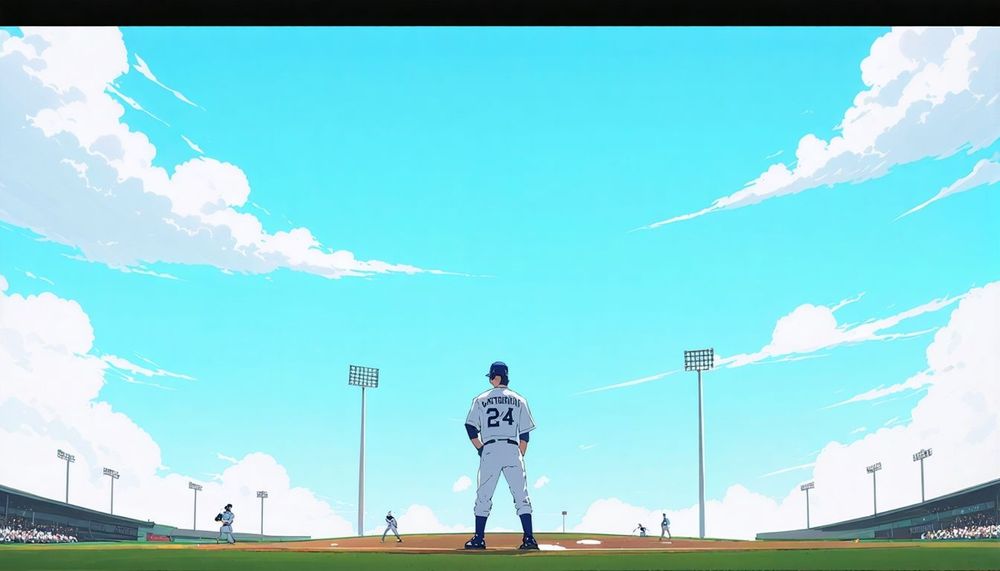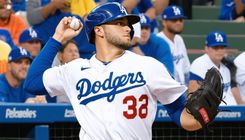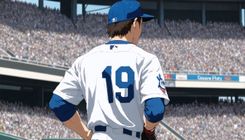MLB Power Rankings After Trade Deadline

The recent trade deadline marked one of the more active days in Major League Baseball history, prompting a reassessment of the league's dynamics as teams brace for the final stretch of the season. As the line between buyers and sellers became clearer, this week's power rankings reflect not only teams' recent performances but also their actions—or lack thereof—during the trade deadline. The Los Angeles Dodgers and New York Mets, for example, boast formidable rosters on paper accompanied by hefty payrolls, yet this season has seen an absence of a definitive No. 1 team, with multiple franchises having occupied the top position at various points in rankings thus far.
Positioned at the bottom of the rankings, the Colorado Rockies (30-81) remain entrenched in mediocrity. Historically hesitant to engage in significant trades, they opted to sell this year, moving on from Ryan McMahon's contract and trading away relievers Jake Bird and Tyler Kinley for prospects. While this does not signal a comprehensive rebuild, it does indicate a shift towards improvement for a franchise that has struggled in recent years.
The Washington Nationals (44-67) made strategic moves before the deadline, trading away several players with expiring contracts while preserving their more valuable assets, including emerging star MacKenzie Gore. With a significant number of games remaining against divisional rivals such as the Philadelphia Phillies and New York Mets, the Nationals may play a crucial spoiler role in the NL East race. Meanwhile, the Minnesota Twins (52-59) faced a transformative week, trading a total of ten players from their roster. With the departure of controllable relief pitchers and key contracts like that of Carlos Correa, the organization appears to be leaning into a more extended rebuilding phase, raising questions about the future of their rotation.
Among the teams navigating the trade deadline were the Atlanta Braves (47-63), who retained several players, including Marcell Ozuna and Raisel Iglesias, in a move that raised eyebrows given their near-zero postseason chances. The Chicago White Sox (42-70), however, managed to turn their roster moves into victories, offloading players like Adrian Houser for notable prospects. Despite their subpar season, they view the final stretch as an opportunity to evaluate young talent for its long-term prospects.
Conversely, the Pittsburgh Pirates (48-64) took an intriguing approach, keeping key players while acquiring others in moves that could pay off in the future. Their decision to capitalize on their own trade pieces raised questions about their immediate strategy. The Oakland Athletics (49-65) capitalized on their own trades, acquiring highly regarded prospects that may strengthen their future roster, though they continue to be mired in a tough season. The Arizona Diamondbacks (53-59) were less fortunate, as they traded several key players without adequately bolstering their pitching staff, leaving them with significant work ahead in the offseason.
In an unexpected turn, the Baltimore Orioles (51-61) concluded the trade deadline by offloading numerous players, including Ramón Laureano and Charlie Morton, while leaving more substantial veterans such as Zach Eflin untraded. This indicates a clear shift towards rebuilding despite a promising young core already present. The Los Angeles Angels (54-58) engaged in 'soft buying,' acquiring rental players while retaining potential trade pieces—a move indicative of their challenging decision-making amid a disappointing season.
The St. Louis Cardinals (56-57) made moves indicative of both rebuilding and a focus on immediate improvement, trading relievers for prospects that may help shape their future. The San Francisco Giants (56-56) sold off established relievers while securing younger talent, though the success of these trades may depend heavily on the performances of their incoming players. The Tampa Bay Rays (55-58) similarly balanced buying and selling, acquiring new talent for both their rotation and bullpen as they seek to re-enter playoff contention.
From a competitive perspective, the Cincinnati Reds (58-54) found themselves wrapping up the trade deadline with promising acquisitions but face high stakes against a tough schedule ahead. The Kansas City Royals (56-56) took a buying approach at the deadline, leaning on new acquisitions to aid their quest for a wild-card position as they remain in the hunt.
The Cleveland Guardians (56-55) managed few trades, moving only injured pitchers while picking up a notable prospect, symbolizing a cautious approach amid their current struggles. The Miami Marlins (55-55) turned heads with their strong performance over the last two months, placing them in contention despite trading away some assets. The Texas Rangers (58-55) positioned themselves as buyers, successfully enhancing their rotation with key player trades, while the New York Yankees (60-52) fortified their bullpen with strategic trades, setting the stage for a critical end-of-season push.
As the rankings attest, a significant shift has occurred in the league. The Milwaukee Brewers (67-44) sit atop these rankings, boasting a stellar record while making calculated moves to deepen their roster. The Los Angeles Dodgers (65-47) and Chicago Cubs (65-46) also remain in strong positions, although their trade deadline activity varied significantly. The Toronto Blue Jays (65-48) have not only maintained a solid lead in the AL East but have also made strategic acquisitions that may prove vital as the season progresses.
In summary, the baseball landscape is dynamic, with various teams jockeying for position as mascots of both buyers and sellers negotiate the volatile marketplace of trade possibilities. The next two months promise significant opportunities for those in contention while maintaining a keen eye on the future as franchises seek to balance immediate success against long-term growth.









